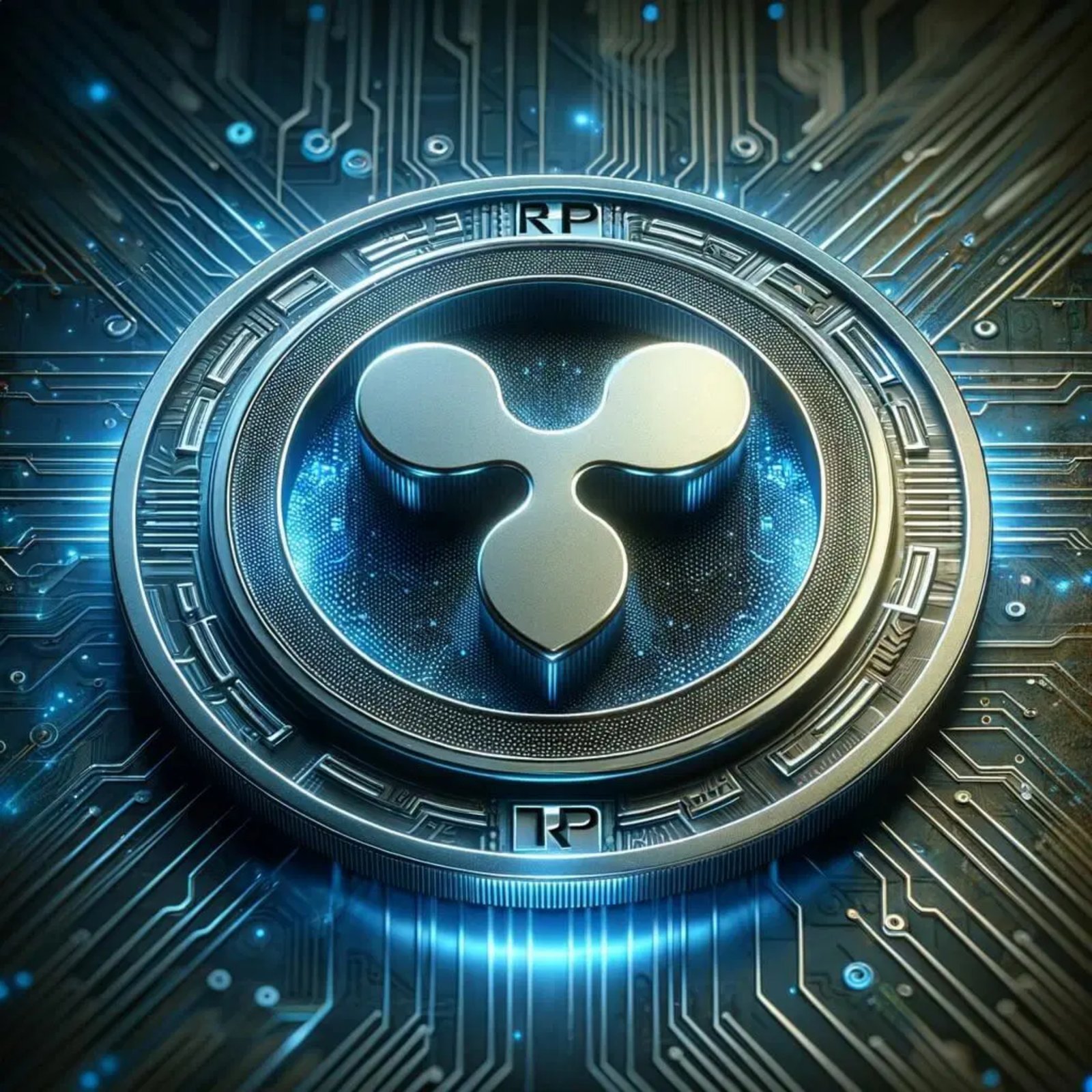Ripple: A Faster, Cheaper Alternative to Traditional Payments
- Posted on 09 May, 2022
- crypto trading
- By Somto Daniel

When it comes to making payments, many of us have experienced that sinking feeling of waiting for transactions to process, watching bank fees rack up, and feeling like we're stuck in the stone age of finance. Thankfully, technology has come to the rescue with solutions like Ripple, a digital payment protocol that promises to make transactions faster, cheaper, and more efficient.
But what exactly is Ripple? Why does it matter? And how does it offer a better alternative to traditional payments? Let’s dive into the world of Ripple and explore its potential to transform the way we move money around the globe — with a sprinkle of humor, some motivational nuggets, and a nice wrap-up at the end!
What is Ripple? And Why Should You Care?
Ripple is more than just another cryptocurrency. It’s a real-time gross settlement system, currency exchange, and remittance network, built on a decentralized, open-source protocol. Simply put, Ripple is like that friend who knows everybody, speaks every language, and can get you into any club without a cover charge.
Founded in 2012, Ripple was created to address some of the biggest issues in the global payments system, slow transaction times, high fees, and the inefficiencies of the traditional banking model. While other cryptocurrencies focus on decentralization and anonymity, Ripple focuses on facilitating fast, reliable, and low-cost international payments.
Think of Ripple as the "speed dating" of payments, why wait forever when you can get things done in just a few moments?
How Does Ripple Work? The Magic Behind the Scenes
Ripple operates on its own blockchain network, known as the RippleNet, and uses a unique digital currency called XRP. Unlike Bitcoin, which relies on mining and proof-of-work, Ripple uses a consensus algorithm to validate transactions. This allows transactions to be completed in mere seconds, a far cry from the sometimes glacial pace of traditional banking methods.
Related stories:
👉🏽Bitcoin: The Original Crypto Currency
👉🏽Decoding The Blockchain: A Beginner's Guide
👉🏽Crypto Currency And The Metaverse: The Perfect Match
A. The RippleNet Network: The Magic Carpet Ride of Payments
RippleNet is a global network of financial institutions that use Ripple's blockchain technology to facilitate faster, cheaper cross-border payments. Instead of relying on a complex web of intermediaries, RippleNet connects directly with banks, payment providers, and digital asset exchanges to settle transactions almost instantly.
-
Speed: With Ripple, cross-border payments can be completed in just 3-5 seconds. That's faster than the time it takes to decide what to watch on Netflix!
-
Cost: Ripple's transaction fees are minuscule compared to traditional banking fees. Say goodbye to those annoying charges that make you wonder if your bank is secretly funding a moon colony.
-
Transparency: Ripple provides end-to-end visibility for both parties in a transaction, reducing the chances of errors and ensuring everyone knows exactly what's happening at all times.
Success is not just about making money, it's about making an impact." — Ripple CEO Brad Garlinghouse
B. XRP: The Secret Sauce of Ripple’s Success
Ripple's native digital currency, XRP, is the bridge currency that facilitates transactions on the Ripple network. Think of XRP as the friendly neighborhood Spider-Man of currencies which is quick, efficient, and always ready to save the day (or at least your wallet).
XRP is used as a bridge currency to help facilitate transactions between different fiat currencies. This allows users to avoid the high costs and long wait times associated with traditional currency exchanges. Unlike other digital currencies that fluctuate wildly in value, XRP is designed to be stable, ensuring it’s practical for real-world transactions.
If Bitcoin is the unpredictable, roller-coaster-loving cousin, then XRP is the dependable friend who shows up on time with coffee.
The Benefits of Ripple: Why It’s a Game Changer
Ripple's innovative approach to payments offers several key advantages over traditional systems:
1. Faster Transactions: Blink, and It's Done!
Traditional cross-border payments can take days to process. With Ripple, you can send money to the other side of the world in the time it takes to make a cup of coffee. This speed is particularly valuable for businesses that rely on quick and efficient transactions.
2. Lower Costs: Keep More of Your Money
Ripple eliminates the need for multiple intermediaries, which means fewer fees and lower costs. This is especially significant for remittances, where high fees can eat up a substantial portion of the amount being sent.
3. Enhanced Security: Sleep Easy Knowing Your Money is Safe
Ripple uses advanced encryption techniques and a consensus algorithm to ensure the security of every transaction. Unlike traditional banks, which can be vulnerable to fraud and hacking, Ripple’s decentralized network offers enhanced protection.
Security is not a product, but a process.
4. Global Reach: Connecting the Dots Across the World
RippleNet has already partnered with hundreds of financial institutions worldwide, creating a truly global network. Whether you're sending money to a friend in Mumbai or paying a supplier in Tokyo, Ripple has you covered.
Trending Now: 👉🏽The Rise To NFTs: A New Digital Asset Class
Why Ripple Over Traditional Payments?
You might be wondering, "Why should I bother with Ripple when I can just use my bank?" Good question! Here's the answer:
-
Banks are Slow: Traditional payments systems, like SWIFT, can take days to process international transactions. Ripple, on the other hand, processes transactions in seconds.
-
Banks are Expensive: The fees associated with traditional payments are often high, and hidden fees can add up. Ripple cuts these costs dramatically, making it an attractive option for anyone who doesn’t like burning money.
-
Banks are Limited: Not all banks are interconnected, and not all of them work seamlessly across borders. Ripple connects financial institutions globally, providing a much broader reach.
If traditional banking is a clunky old computer, Ripple is the sleek new tablet faster, smarter, and way more fun to use
Real-World Applications: How Ripple is Changing the Game
Ripple's impact is already being felt across various sectors:
-
Remittances: Ripple makes it easier and cheaper for people to send money to family and friends across borders, especially in countries where access to banking is limited.
-
Banking: Ripple is partnering with major financial institutions to improve the speed and efficiency of cross-border payments.
-
E-commerce: Ripple’s technology is being used by online merchants to offer faster, more secure payments to customers worldwide.
Innovation is the ability to see change as an opportunity, not a threat.
Conclusion: Ripple Is the Future of Payments
Ripple offers a faster, cheaper, and more efficient alternative to traditional payment methods. Its technology is already revolutionizing the way money moves around the globe, breaking down barriers, and making financial transactions as easy as sending an email. Whether you're a bank, a business, or an individual, Ripple has something to offer.
In a world where time is money, why settle for outdated, expensive, and slow systems when you can ride the wave with Ripple?
So, the next time you’re stuck in a never-ending line at the bank, just smile and think to yourself, “I’ve got Ripple, and I’m not looking back!”
You might also like:
👉🏽Crypto Currency
👉🏽Crypto Currencies The Future Of Money
👉🏽 Cardano: The Proof of Stake Pioneer




0 Response